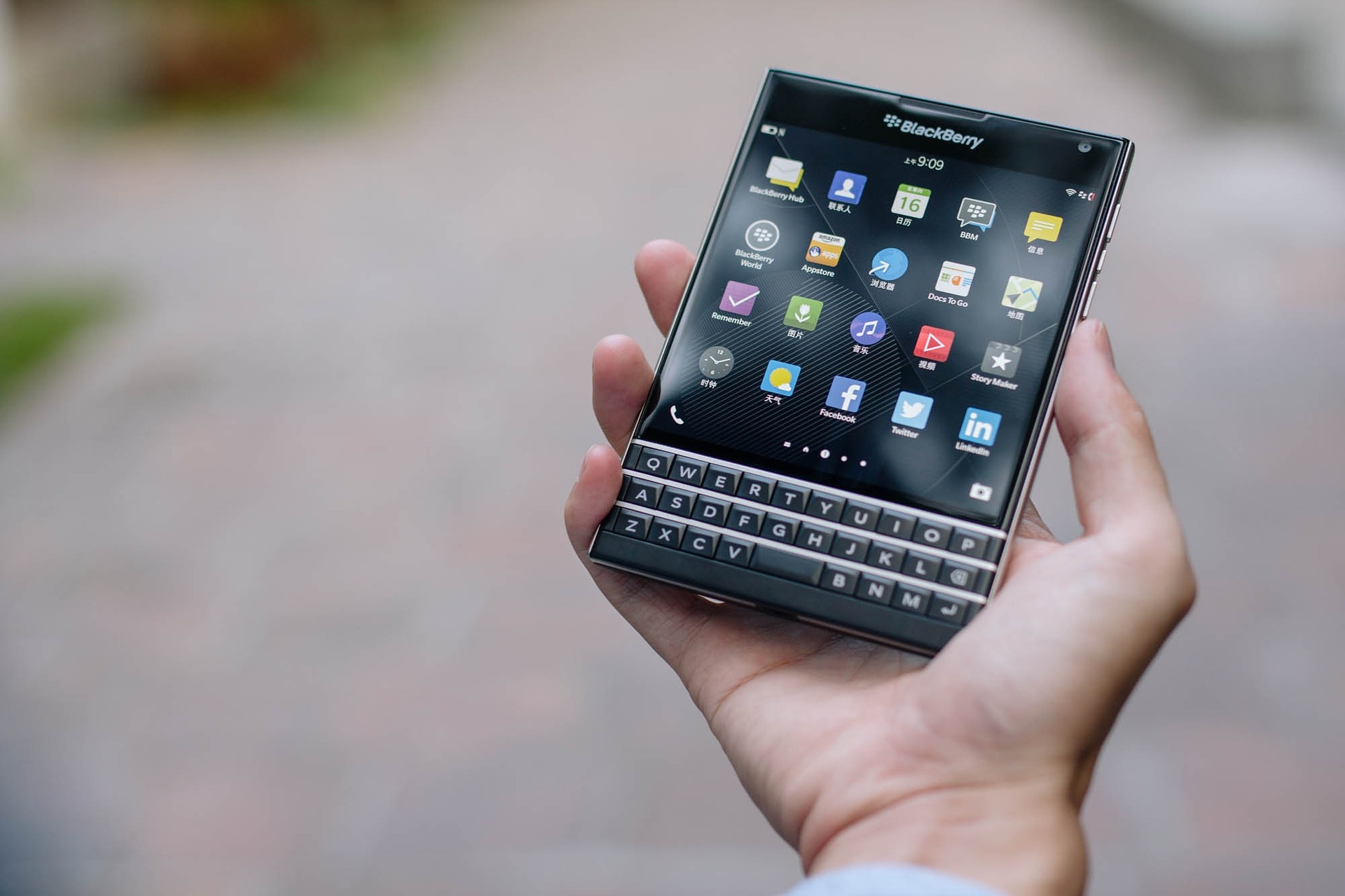The dawn of 2022 brings in high hopes for the year ahead. Among the early days of a new year, it’s common to feel as if there’s a vast territory of new months to conquer. For many, taking charge of the year leads to cleaning out the old and making way for the new. Whether these are metaphorical or physical changes, the first month of the year tends to invite a sense of renewal into people’s lives. Anyone from the individual to a global company can set the tone for the months ahead by making drastic changes. As a result, the recent decision to cease software updates for BlackBerry’s classic phones became the first victim of these 2022 changes.
For those who have no idea what a BlackBerry is besides a juicy summer fruit, the BlackBerry phone originated from the company Research in Motion, or RIM. RIM initially manufactured pagers that broke through the technology scene because they could send and receive emails. Fast forward to 2002, those humble pager beginnings led to the first BlackBerry “smart” cell phone: messaging, email and Wi-Fi capabilities combined with cellular calling in one device.
The BlackBerry quickly grew popular in the early 2000s due to all the functions that could fit in the palm-sized tool. Today, the full keyboard is the main attraction of the BlackBerry, especially for those who desire the “flexibility of working outside of the office with some of the tools they used on a desktop computer.” Combined with the trackball/trackpad, the dual aesthetic and functionality of the BlackBerry made it sought out by everyone, from the budding teenager to the working adult.
While the smartphone has blended working and personal life today, such changes are not without pitfalls along the way. As the BlackBerry paved the way for smartphone technology in the mainstream, competitors were quick to join the game. With the 2007 release of the first iPhone and the 2008 release of the HTC Dream, a new age of smartphones dawned on the cellphone industry. BlackBerry’s initial disregard for these changes proved their loyalty to their fanbase, but time and trends ended up catching up with them. Even after integrating with Android OS, the changes made by BlackBerry were few too late to salvage the original models.
In early January 2022, the BlackBerry company announced that the “legacy services” for older phone models will no longer operate. Phone models ranging from BlackBerry 7.1 OS to BlackBerry 10 were the most affected by this announcement. That is, the “original” or “classic” BlackBerry devices currently using this software cannot be updated and will lose all working functions.
Despite this announcement, the Android-based devices — such as the newer BlackBerry smartphones that do not look like their original counterparts — are left unaffected. But, as CNN put it, “You can no longer use that old BlackBerry phone sitting at the bottom of your drawer somewhere.”
The decision to decommission the BlackBerry handset should not come as a shock, given their struggle to compete with other smartphone giants. For example, the rise of the iPhone and Samsung Galaxy pushed aside the appeal of the tactile keyboard for a glowing touchscreen. Though “closing the door on a piece of technology that helped usher in a revolution in communications” seems like a lofty statement for a cell phone, the current technology boom could not take place without the BlackBerry.
To reiterate, with the steady stream of yearly iPhone releases and Samsung’s pursuit of the foldable smartphone, all these advancements would not be possible without the BlackBerry hinting at smartphone tech. However, the detriment of its limited success comes with the fact that BlackBerry could not keep up with the market it ultimately created. A 2016 article from The Verge said the following on the fall of the BlackBerry: “It provides a prime example of an incumbent business being disrupted by sprightlier newcomers.”
The BlackBerry’s dedication to their best-selling keyboard products, regardless of the broader shifts to touchscreen paradise, proved to be the poison that made their image in tech unsalvageable today. As the new pushed out the old, the smartphone revolution sent BlackBerry phones to the back of the demand queue.
From a wider perspective, why should the internet get choked up from losing an old phone to the point where it’s making headlines? In today’s tech-centric world, it’s safe to say that most people are glued to some sort of smartphone; staying connected online for work or pleasure ends up producing a strangely intimate connection between the user and device.
The frazzled state of a person forgetting their phone for one day is met with pity, due to the underlying notion that smartphones help dictate everyday life. However, this phenomenon did not kick off with the latest iPhone or Android smartphone; cellphone fanaticism stems back to the BlackBerry. In its early 2000s prime, everyone who was anyone had a BlackBerry. According to NPR, the BlackBerry was a marker of status “among politicians, business leaders and everyday users.”
The diehard BlackBerry love doesn’t stop there: Fans were deemed “Crackberries,” a term established by their constant affections for the device. While it can be hard to believe such a small and limited phone could have so much power over people, think about the way owning a certain brand of smartphone represents status today.
In actuality, the “death” of the original BlackBerry models comes with such a heartfelt response because of their longtime and worldwide fanbase. Some BlackBerry aficionados took to Twitter to express their woes for the device: A slew of “R.I.P.” tweets and “end of an era” farewells were wished upon the BlackBerry on its final day.
However, the surprisingly sentimental nature of these goodbyes results from the nostalgia of remembering the phone in its prime. One user shared his collection of old phones accompanied by the caption “Each device in my collection has its own unique memory.” By placing that sort of life-changing weight on something as simple as a cellphone, it redefines what it means to keep “relics” of the past. The nostalgia that one dwells on may look different than a photo album of memories or a favorite song; instead, the past may be tied to a collection of phones that mark various milestones of growing up. Another user formed an interesting discovery on the comfort of the phone: “#BlackBerry may be end of life but the people who grew up with them are still kicking (and screaming).”
Even though the handset is put to rest, the ways that it impacted a generation of users will not be forgotten. From being a person’s first phone to introducing the world to “smartphones,” the BlackBerry left its legacy behind in its fans. If a tweet can look at the BlackBerry with the sentiment of a friend, it begs the question of the impact that a single item can have on one’s history.
If the last few years have proved anything, it is that there is something comforting about reflecting on the memories that shaped us. Feeling nostalgia for those moments — such as getting a first cell phone or smartphone — ends up taking a different spin on what it means to reminisce over the past. It’s almost admirable to think about how many moments a cellphone is involved in one’s life, from large to small, or from the uber-significant to the fleeting.
Sadly, people usually only remember how these devices changed who they are as individuals when the technology is growing and changing itself. The decommissioning of the BlackBerry marked a change that bubbled up feelings one might not realize, but it is important to acknowledge its impact.
In a way, holding on to the technology that one grew up alongside becomes the physical substitute for holding on to time long gone. A phone could just be a phone, and that can be all that is said — or maybe a phone is deemed worthy of a trip down memory lane.

















